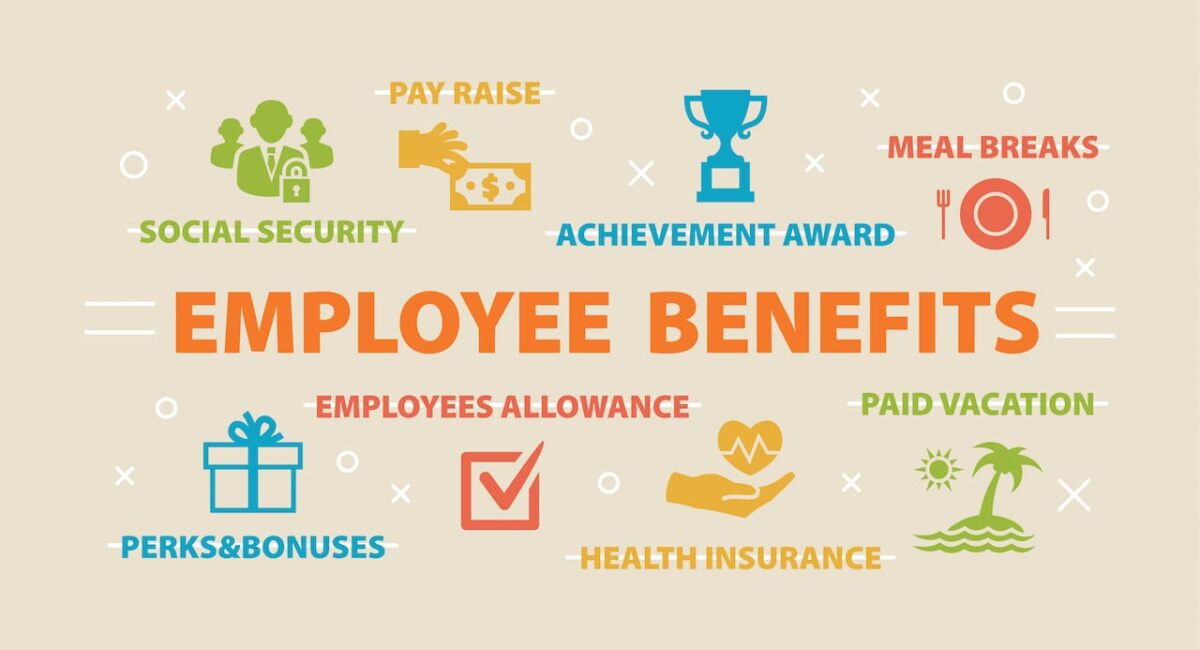The year 2023 has brought new tax challenges for taxpayers, but also tax advantages for employers who can now grant certain tax benefits to their employees.
We would like to draw attention to the benefits that employees can now enjoy, and in this sense can add a milestone in building a beneficial relationship between employer and employee. These tax benefits can be granted in addition to the basic salary, thus creating a higher remuneration base.
We will summarise below the main types of benefits and the way in which the legal regime of such benefits is regulated by tax legislation in force.
Starting with the income earned by taxpayers as of 1 January 2023, the following tax benefits may be granted by the employer in respect of income from wages and salaries and assimilated to wages and salaries by introducing a total ceiling not exceeding 33% of the basic salary corresponding to the job occupied, under the conditions established by law, for the following cumulative monthly income.
Additional benefits under mobility clauses – daily allowance, mobility allowance
We will start listing the tax advantages by mentioning the additional benefits obtained by employees under mobility clauses, other than those obtained for mobile workers provided for by GD No 38/2008 – mobile transport activities, the daily allowance and mobility allowance not exceeding 2.5 times the legal level established by the Government Decision.
Meal vouchers
Secondly, on the list of tax advantages we find the countervalue of a meal voucher/person/day, up to a maximum amount. These vouchers can be granted by employers at their discretion, in the sense that a value of 30 lei can be granted for the period 1 January 2023 – 1 July 2023, and from 1 July 2023 employers will be able to grant meal vouchers up to a maximum value of 40 lei.
Settlement of tourist services
Next, we point out that employers will be able to grant the countervalue of tourist and/or treatment services, within the limit of an annual ceiling, for each employee, representing the level of an average gross salary used to base the state social security budget for the year in which they were granted.
What does this ceiling mean? Employees will be able to grant holidays on the basis of either the employment contract or an internal regulation whereby the amount of the holiday must not exceed the level of the gross minimum wage for each employee in a tax year. We show that in 2022 this was 6,095 lei and in 2023 it is 6,789 lei, which means that up to this amount the employer can pay for the services referred to in 6,789 lei without being taxable.
Gift vouchers
On the other hand, from 2022 onwards, the regime of gift vouchers has also been clarified, which employees can grant exclusively to their own employees and not to third parties (as in the past for certain marketing or promotional services provided by third parties).
Therefore, with the year 2022, it has been clarified that gift vouchers of up to 300 lei per occasion may be granted, including:
– gifts given to employees, as well as those given to their minor children, on the occasion of Easter, Christmas and similar holidays of other religious denominations;
– gifts given to female employees on 8 March;
– gifts given to employees for the benefit of their minor children on 1 June.
Please note that any amount exceeding 300 lei/person/night is subject to income tax and compulsory social security contributions.
Voluntary pension contribution
The voluntary pension contribution is the tax benefit that can be granted depending on the employee’s choice to have a voluntary pension scheme, within the limit of 400 euro/year/person. This ceiling is not subject to any tax or social contribution.
Medical subscriptions
This is also the case for voluntary health insurance premiums, as well as for medical services that employees decide to obtain in the form of a subscription, the limit also being 400 euro/year/person.
Allowance for teleworking
As regards employees who are employed on teleworking, they will be entitled to an allowance of 400 lei corresponding to the number of days in the month in which the individual works on teleworking, these amounts being compensation for the maintenance costs of the place where the work is carried out.
Subscriptions for the use of sports facilities
An innovative tax facility will allow employers to pay the cost of subscriptions for the use of sports facilities for the practice of sport and physical education for maintenance, prophylactic or therapeutic purposes, provided that the providers have activities falling under CAEN codes 9311, 9312 or 9313. The limit of these facilities is 400 euro/year/person. We point out that there is a particularity in this case compared to the rest of the tax benefits, in that they will apply as from income relating to February 2023.
We also point out that employers will be able to grant other benefits, but these will be assimilated to wages, with the consequence that they will be subject to income tax and compulsory social contributions.
Employee profit-sharing
To the extent that employees share in the profits, under art. 76(2) of the Tax Code, they shall be considered salary income and they will be taxed with income tax and social security contributions.
Service phone and coffee
As regards the business telephone and the coffee given to employees, in principle, they will be considered as wage income if they are used for personal purposes, having the legal nature of a benefit in kind.
Teambuilding
Employees can carry out teambuilding activities for training purposes, or they can attend training courses which will not be taxable. As an exception, to the extent that teambuilding is mixed, i.e. also leisure, then separate tax treatments will apply in that the part that is considered reactive purpose will be taxed as a benefit in kind.
Uniform or work equipment
To the extent that the employer decides to grant technical or work equipment, we point out that all of these are intended to ensure the protection and health of employees, i.e. they are compulsory uniforms according to the law and equipment rights, and therefore become non-taxable income, which will not even be subject to social contributions.
Funeral aid and childbirth aid
If the employer decides, by internal regulation or employment contract, to grant certain funeral benefits to its own employees, we would like to point out that these will be non-wage benefits, which will not be subject to any taxation and there is no threshold limit/person. The same tax treatment will apply to birth grants.
Night time bonus
At the same time, it is known that employers who want their employees to work at night (10 p.m. to 6 a.m.) will have to compensate for this work schedule with a night-time bonus, which will be considered a wage-related benefit and subject to all compulsory contributions. The same tax treatment will apply to weekend allowances for employees who have to report for work at weekends.
Relocation expenses
If we are in the special situation of an employee who has to relocate both family and household goods in the interests of work, he or she will benefit from relocation expenses, which means that all expenses incurred in moving in the interests of work will be covered and will not be subject to income tax or social security contributions.
Non-repayable loans from the firm
Employees will also be eligible for non-repayable loans from employers, within the meaning of Article 76(2). (3) lit. (c) of the Tax Code, which will also be assimilated to income from wages, being taxable, i.e. social contributions will also be payable.
Childcare vouchers
Childcare vouchers are the following tax benefits whereby employers compensate employees who do not benefit from the leave and allowance granted for raising children up to the age of two, or three in the case of disabled children, and are used exclusively to cover the cost of fees for the child’s day-care centre.
Of particular relevance here is the fact that the amount of this allowance from April 2023 is 600 lei/month and is subject to income tax, but is not subject to social health contribution or compulsory social contribution.
In conclusion, we believe that the legislative development in terms of the tax facilities that employers can grant to employees is evident and supports the fight against labour shortages, as these have been and continue to be some of the major contemporary challenges facing the labour market.
This article was prepared for the blog of the law firm Costaș, Negru & Asociații by av. Larisa Mărginean of the Arad Bar Association and av. Adela Suciu from the Cluj Bar.
Costaș, Negru & Asociații is a law firm with offices in Cluj-Napoca, Bucharest and Arad, which provides assistance, legal representation and advice in several practice areas through a team of 17 lawyers and consultants. Details of the legal services and the composition of the team can be found at https://www.costas-negru.ro. All rights for materials published on the company’s website and via social media belong to Costaș, Negru & Asociații, reproduction is permitted for information purposes only and with full and correct citation of the source.













